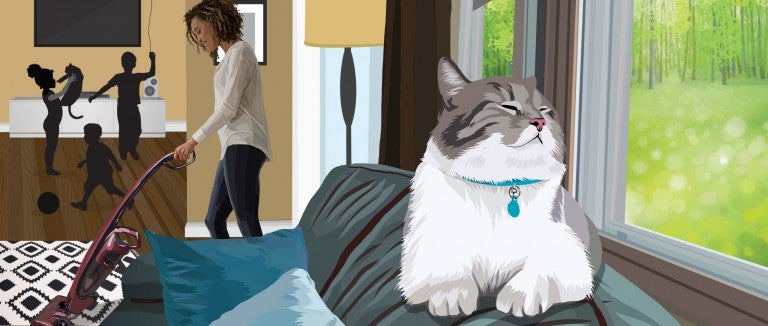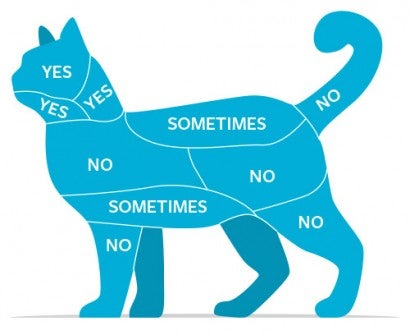Everything from our household cleaning habits to the way we interact with our cats can cause anxiety and stress. And when cats face multiple sources of stress, they can become very unhappy. Cat stress can lead to problematic behaviors, like peeing outside the litter box, and it can also affect their quality of life. A stressed cat can even become sick.
How to reduce stress in cats
Here are some ways to avoid cat stress and make your home a safe space.
Reduce scents
Cats feel at home when they can mark their environment using scent glands in their cheeks, flanks and paw pads. Incense, fragrance plug-ins, essential oils and scented candles can irritate cats and mask their own smells. Avoid using heavily scented detergents, cleaning products, candles and more.
Lower the volume
Many cats are sensitive to loud sounds, such as power tools and high-volume music. If your house is noisy, set aside a quiet space where your cat can escape. You could use a white noise machine or fan in a spare room, for example. You can even find music designed for cats.
Provide a clean, pleasant litter box
Cats are very sensitive to dirty litter boxes. Offer at least one litter box for each cat in the house, plus one more. Most cats like a large, open box and unscented litter with a sandy texture. You can try multiple options and see what your cat prefers. Be sure to scoop litter at least once a day.
Sign up to receive our exclusive e-book full of important information about keeping your cat healthy and happy.

Signs of a stressed cat
It’s easy to miss clues that our cats are stressed. They don’t have easily recognizable facial expressions, and they show their feelings in subtle ways. Learn how to read their body language and vocal clues.
What to do if your cat is stressed
Try following the steps above to make your home a more comfortable place. Teach kids to respect your cat’s needs, including letting the cat come to them for attention rather than the other way around. Ask your veterinarian for help if your cat is constantly stressed. They might refer you to a veterinary behaviorist, who is an expert in cat and dog behavior.


